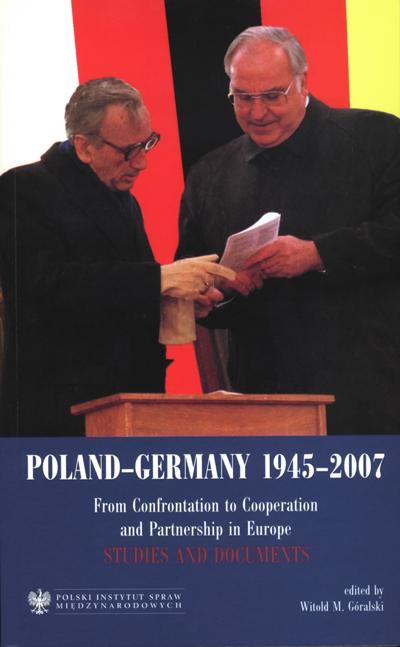The Polish-German Community of Interests. Origins—Achievements—Threats
The Polish-German Community of Interests. Origins—Achievements—Threats
Author(s): Witold M. GóralskiSubject(s): Politics / Political Sciences
Published by: PISM Polski Instytut Spraw Międzynarodowych
Keywords: Polish-German Relations; cold war
Summary/Abstract: Introduction 309 1. Bonn’s Modus Vivendi Policy with Regard to the PRP 311 2. Building Foundations for Normalcy in Bilateral Relations 317 3. The Genesis of the Polish-German Community of Interests 320 3.1. Poland’s Pro-Western Orientation and Relations with the FRG 321 3.2. Dispute about the Recognition of the Oder–Neisse Border in the Two Plus Four Process 3.3. The Concept of a Polish-German Community of Interests 4. Poland’s Road through Germany to Europe 4.1. Poland—Germany—NATO 4.2. Poland—Germany—the European Union 5. The Significance of Polish-German Reconciliation for Relations between Poland and the FRG 5.1. The Sources of Polish-German Reconciliation 5.2. Polish-German Reconciliation as a Political Value 5.3. The System of Values behind Polish-German Reconciliation 5.4. The International Record of Polish-German Reconciliation 6. Polish-German Reconciliation and Community of Interest 7. Conflicts and Threats in Polish-German Relations after 2004 7.1. The Restitution and Damages Dispute 7.2. Sources of Threats for Polish-German Relations Conclusion The cooperation and understanding between united Germany and Poland that was initiated in the 1990s on the basis of two treaties of fundamental importance for both countries did not logically follow from the normalization process of the 1970s or from its practical effects in the years 1975–1976.1 Quite the contrary: the shift to normalcy in bilateral relations only occurred after a long period of tensions and political and international confrontation between Poland and the FRG in the 1980s. The causes of this period of conflict—not only in relations between Bonn and Warsaw—lay in three sources: – the retreat from détente in East-West relations, as a result of the Soviet Union’s breach of its principles; – the introduction of martial law in Poland at the end of 1981; – the coming to power of a conservative government in the FRG (a CDU/CSU and FDP coalition).
Journal: PISM Series
- Issue Year: 2007
- Issue No: 3
- Page Range: 309-354
- Page Count: 46
- Language: English

